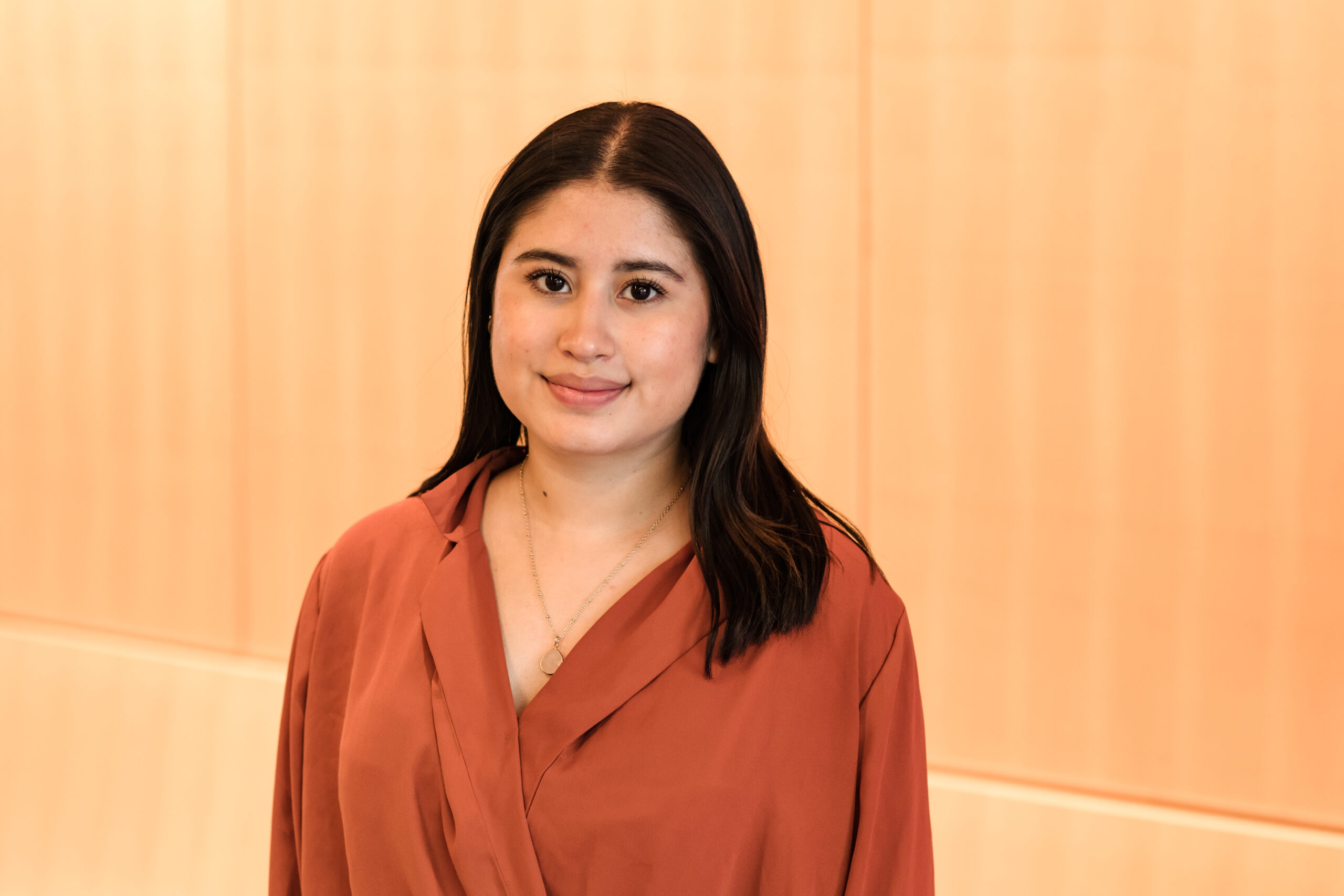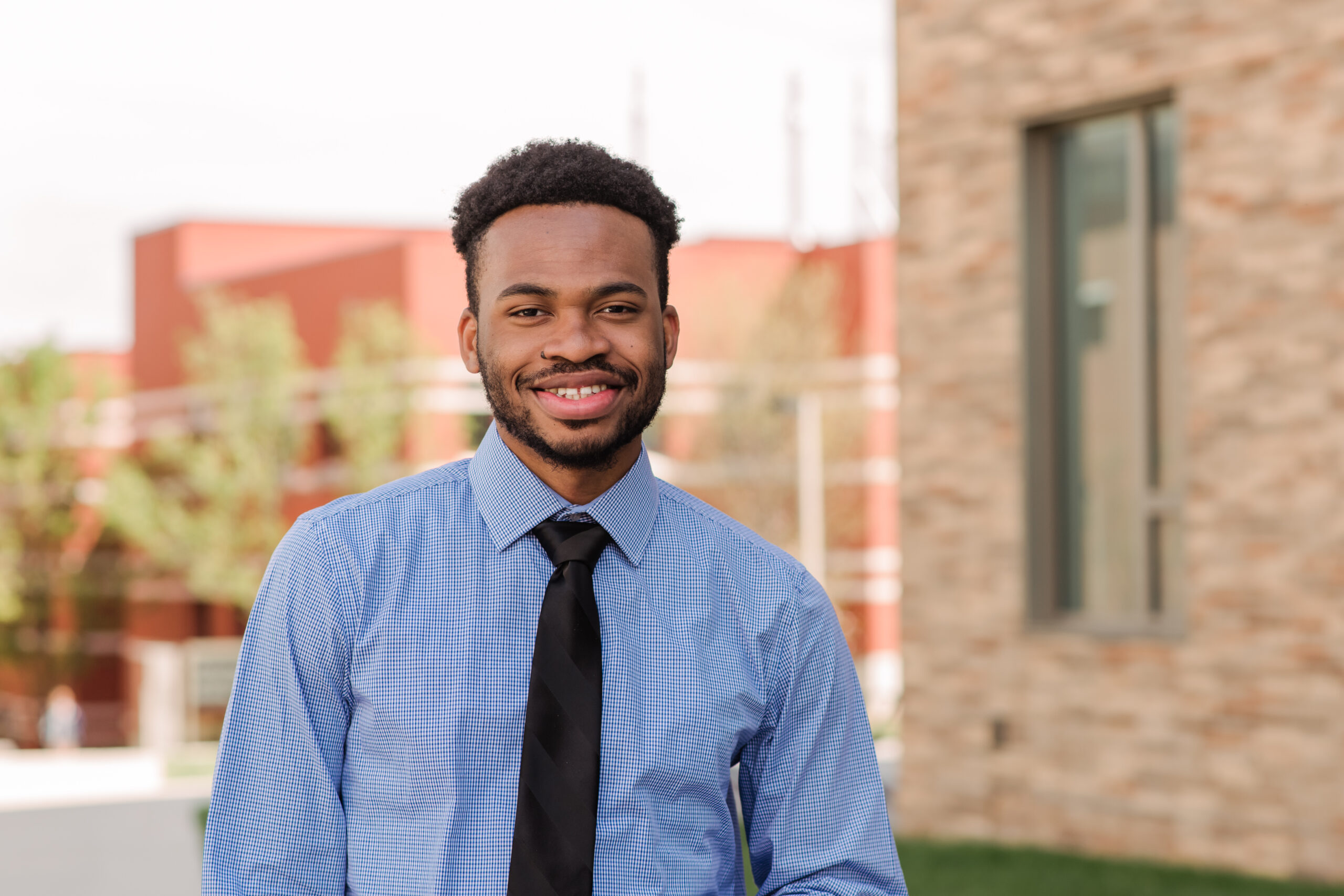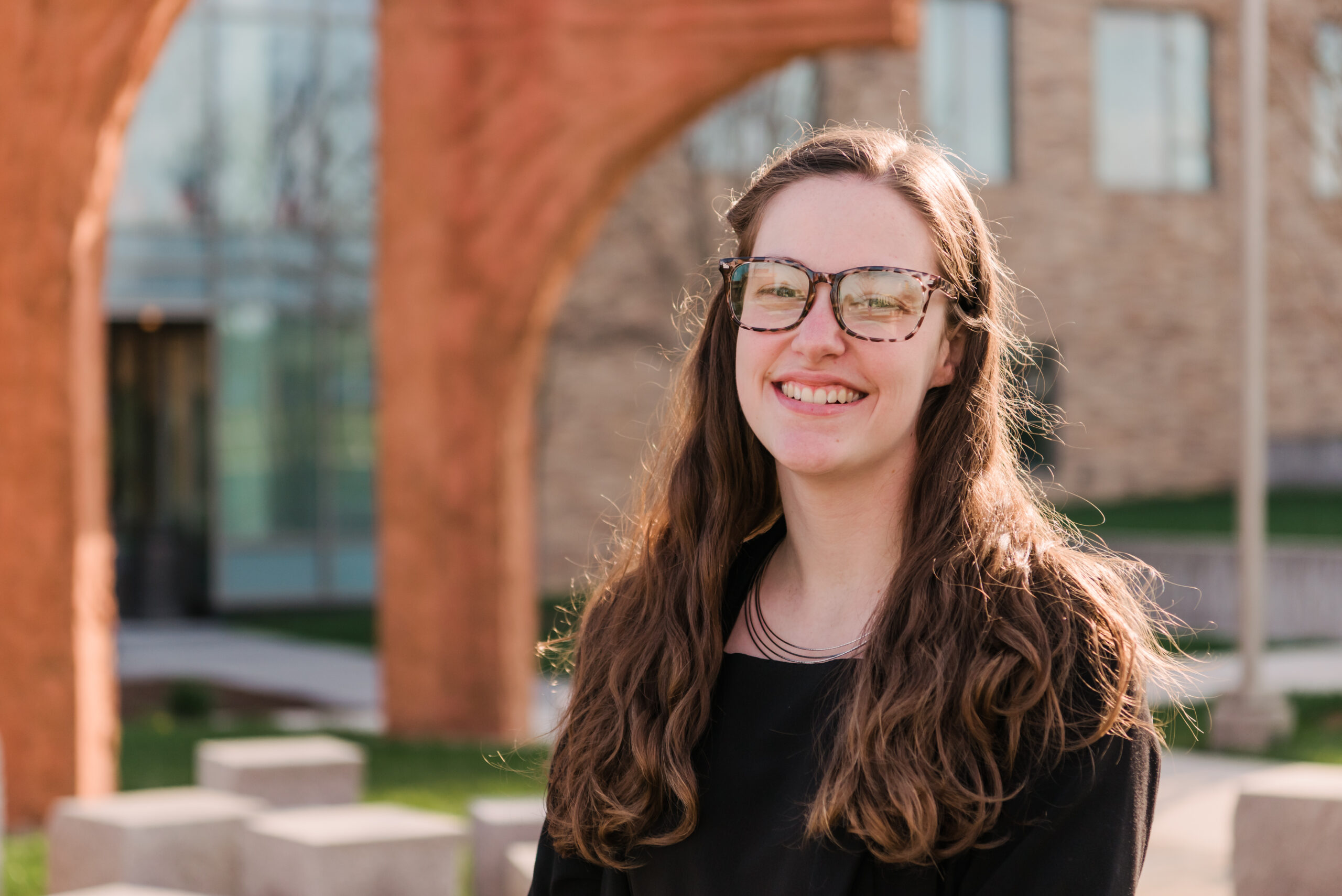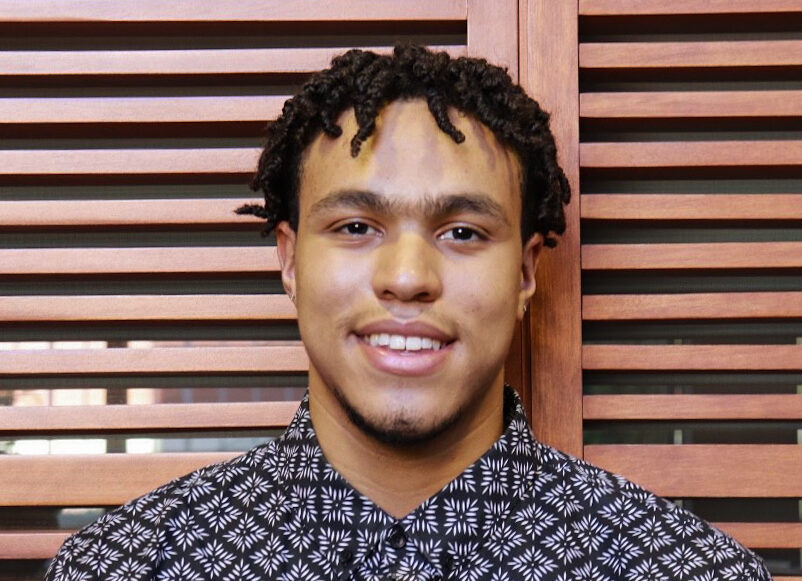New UMBC grads already paying it forward, supporting area youth
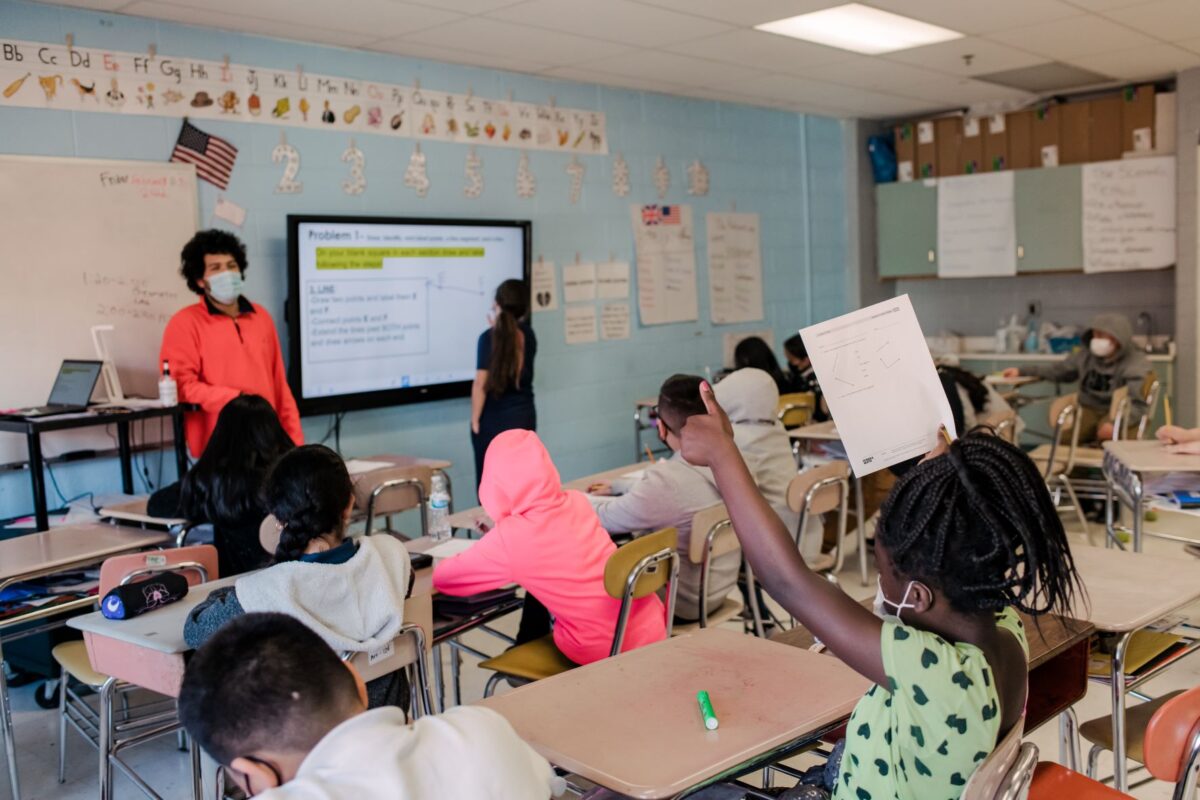
The children at the Walden Circle Community Center in Woodlawn, Maryland were rambunctious, even a little irritable, on a hot afternoon in September. Micah Thorpe ’22, mechanical engineering, a student coordinator for an after school program at the community center, knew just what to do: introduce a rocket-building project.
“Immediately, all the kids locked in on their mission to make sure the rocket took off,” Thorpe remembers. “Just getting them excited about science and engineering, and letting them know that they could be building rockets one day if they really wanted to—that’s what’s kept me coming back and wanting to serve.”
Thorpe is one of many UMBC students who regularly spend their time with local youth, both in the children’s communities and on UMBC’s campus. UMBC students offer tutoring, guidance for the college search and application process, strategies for managing emotions, and more.
Thorpe has worked with local students in various programs every semester during his time at UMBC, eventually taking on leadership roles with Walden Circle and the UMBC chapter of the National Society of Black Engineers. “Especially for underrepresented minorities in STEM, I want to help expose them to what they could pursue,” he says.
Mindful teaching
Ashley Delgado ’22, psychology, and a Sherman STEM Teacher Scholar, has focused her energy on working with pre-kindergarten and second grade students through two semester-long internships at Maree G. Farring Elementary/Middle School in Baltimore City. UMBC’s work with Maree G. Farring and other city schools is supported by the Sherman Family Foundation, which recently invested an additional $21 million in UMBC’s education partnerships, scholars programs, and research.
Delgado also conducted research with Jennifer Mata-McMahon, associate professor of early childhood education, from whom she learned about ways to use meditation and breathing techniques in an educational setting. Right away, Delgado taught the techniques to her students.
The strategies helped the children “express emotions appropriately, because at such a young age, they are feeling a lot of things they don’t know how to express, and sometimes they do so in a way that hurts themselves or hurts others,” Delgado says. Especially during pandemic disruptions, “It was very beneficial for my students, because of some things they were going through at home and just the environment they were in.”
Delgado has chosen to center her career on teaching young children, accepting a position for fall 2022 as a teacher at Lakeland Elementary/Middle School. She’s looking forward to teaching in culturally responsive ways, and creating opportunities for her students to share their backgrounds and personal stories. This emphasis will fit right in at Lakeland, which implemented a dual-language program in collaboration with UMBC faculty in 2018.
Lifting up others
Similar to Thorpe, Favour Nwagugo ’22, biological sciences, has found meaning in supporting younger students through the CHOICE Program and his UMBC peers as a peer health educator.
One of Nwagugo’s most rewarding experiences was as a student coordinator for the CHOICE Program, which, among other activities, brings local youth to UMBC’s campus for educational and recreational activities led by UMBC students.
“Through the process of being a leader I developed organizational and communication skills,” he says. And because the program was offered online beginning in March 2020, when the COVID pandemic began, “I also got better at finding new creative ways of engaging people.”
Especially when the CHOICE sessions were in person, “I would always leave there excited,” Nwagugo says. “It feels so good to help people.” It was particularly rewarding to see quiet students gradually open up and begin to see themselves at UMBC, he shares.
Helping fellow students through the peer health education program has also been rewarding. “Students come to college and they’re in the middle of a lot of stuff. They’re trying to figure themselves out,” Nwagugo says. As peer health educators, “We’re here to give them the tools to have that experience in a healthy and positive way, to have a quality life at UMBC.”
“I’m really excited for the next chapter after UMBC,” Nwagugo says. While he is heading to the National Cancer Institute for a postbac program, he also looks forward to finding new opportunities to support local youth.
Gratitude in action
Kaitlynn Lilly has also turned gratitude for her UMBC experience into efforts to support younger students and her peers. As a volunteer with the Arbutus Achievers program at Arbutus Middle School, she tutored students in math. Later, as the program’s student coordinator, she organized other volunteers and led reflection sessions, ensuring both tutors and their students were getting the most out of the experience.
Involvement with the Arbutus Achievers “has just been such a positive experience for me,” Lilly says. “I really love being at the leadership level, because not only do I still get to have a direct impact on students, but I also get to help UMBC college students understand the impact that they can have on other people.”
Lilly also advised students at Hereford High School through the process of creating a hydroponic farm as a peer advisor with the Society for Women Engineers – NEXT High School chapter. “It was really cool to be able to work with them and show them that you can make your ideas come to life,” she shares. Lilly also serves as a First Generation Peer Mentor for UMBC students.
“I’ve been so fortunate at UMBC to have such great mentorship, in the Meyerhoff Scholars Program, the Honors College, and from Dr. Justin Webster,” assistant professor of mathematics, with whom Lilly has conducted research since her first year.
Lilly plans to continue participating in outreach as her career progresses. Like many of her peers who contribute to the local community, her sense of appreciation for support she’s received drives her commitment. “At every level, I’ve been so grateful for what people have given to me,” Lilly says, “and I want to be able to keep giving that back.”

